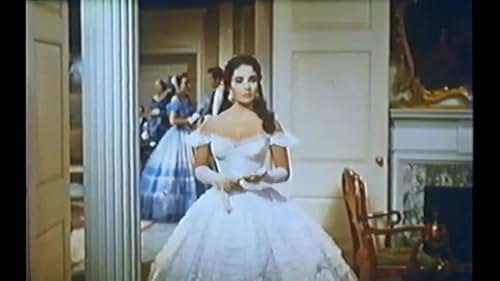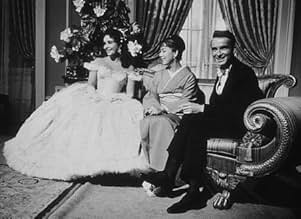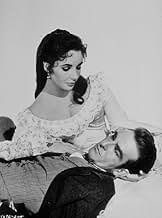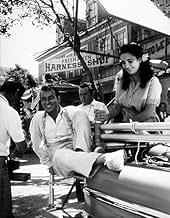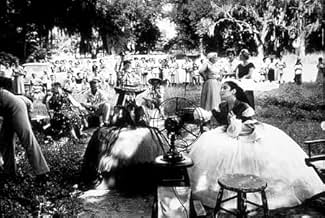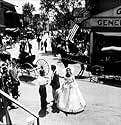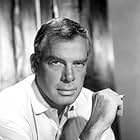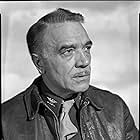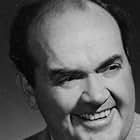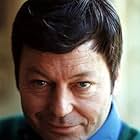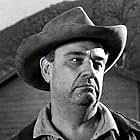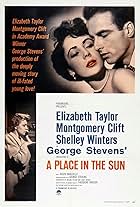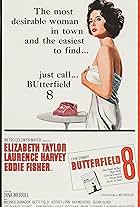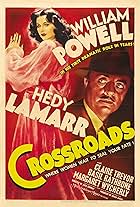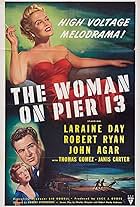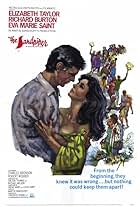A student falls in love with a Southern belle, but their relationship is complicated by her troubled past and the onset of the Civil War.A student falls in love with a Southern belle, but their relationship is complicated by her troubled past and the onset of the Civil War.A student falls in love with a Southern belle, but their relationship is complicated by her troubled past and the onset of the Civil War.
- Nominated for 4 Oscars
- 1 win & 8 nominations total
- Townsman
- (uncredited)
- Parthenia
- (uncredited)
- Townsman
- (uncredited)
- Jake - Bartender
- (uncredited)
- Spectator
- (uncredited)
- Director
- Writers
- All cast & crew
- Production, box office & more at IMDbPro
Storyline
Did you know
- TriviaThe scenes which Montgomery Clift shot for this movie just before his accident represent the only color footage available of him before he was disfigured. All of his previous movies had been shot in black-and-white.
- GoofsAfter Abraham Lincoln's 1860 election, the crowd sings "The Battle Hymn of the Republic". However, Julia Ward Howe wrote the poem on which the song was based for the Atlantic Monthly in 1861.
- Quotes
Susanna Drake: That 4th of July race... what happens when you win?
John Wickliff Shawnessy: Well, according to a friend of mine, if I win, a beautiful girl will place a garland of oak leaves on my sun-colored locks.
Susanna Drake: I'd like to be that girl.
John Wickliff Shawnessy: Maybe it can be arranged?
Susanna Drake: Oh, it can be arranged, all right. *I'll* arrange it.
- Alternate versionsThe longer Roadshow version was released on VHS by Warner, where it was labeled as Reconstructed Original Version. It has also been shown on Turner Classic Movies cable channel. This version contains nearly 15 minutes of additional material not found on the General Release Version.
- ConnectionsEdited from Gone with the Wind (1939)
- SoundtracksRaintree County
Music by Johnny Green (uncredited)
Lyrics by Paul Francis Webster
Sung by Nat 'King' Cole
But dark Elizabeth is Veronica to Saint's blond Betty. Or is it the other way around? No matter. Anyway they have contrasting personalities: the intensely passionate Taylor and the winsome and innocent Saint. Saint, for instance, would never dream of putting out for handsome, intelligent, and sensitive Monty, whereas Taylor does so on their second or third date and then LIES to him about having gotten pregnant. He doesn't mind one way or the other, besotted as he is.
I don't know whether it's worthwhile trying to get through the plot. It's probably been done elsewhere, and I'm too tired to trace the trips, the outbursts of anger and guilt, Sherman's march through Georgia, and the finale, which no power on earth could force me to reveal. Much of it has to do with the fear of having a touch of the tar brush in one's blood.
But I must say, New Orleans is given rather a bad rap as a representative Southern city. It wasn't like any of the others. It had an animated and rich multi-ethnic heritage at the time -- American, French, Spanish, Caribbean, and African. Edgar Degas visited French relatives there late in the '19th century. Slaves of course but not nearly as brutal a system as elsewhere. William Tecumseh Sherman taught at Louisiana State Seminary of Learning & Military Academy, later to become Louisiana State University.
Others have claimed that it was easy to tell the difference between pre- and post-accident scenes of Montgomery Clift but I couldn't. As for the accident, Clift was doing booze and other substances to excess on a daily basis during the shooting. I mean, eating steaks he'd spilled on the floor and so on. After an evening at Liz Taylor's manse perched on a hill, he drove drunkenly down the winding road and didn't quite make it.
Neither the accident nor the booze seemed to interfere with his acting, although the part of the pathetic loner in "A Place in the Sun" suited him better than the idealist he's forced to portray here. Elizabeth Taylor is blindingly beautiful. Many of her films cast her has a frustrated nut job. Eva Marie Saint has the more sympathetic role as the unspectacular girl from home who never manages to shrug off her love for Clift.
It's long. It has an overture and even an entr'acte, evocative photography by Robert Surtees, and a lushly orchestrated but fulsome score by Johnny Green. It's no "Gone With the Wind," though, partly because it substitutes anguish for laughs.
- rmax304823
- Aug 31, 2017
- Permalink
Details
Box office
- Budget
- $5,000,000 (estimated)
- Runtime3 hours 2 minutes
- Color
Contribute to this page


